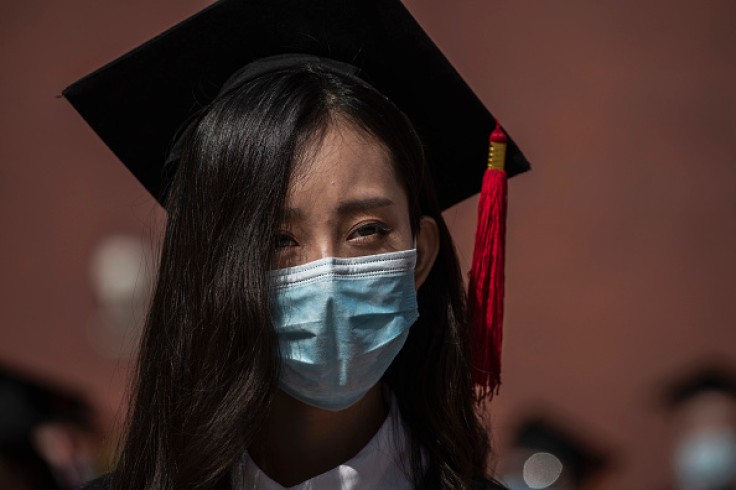
In recent weeks, Chinese social media platforms have been inundated with a series of unconventional graduation photos featuring fresh graduates adopting the theme of "being more dead than alive." These tongue-in-cheek images capture students sprawled on the ground, slumped over chairs, collapsed against walls, and hanging listlessly over staircases. While the photos may seem alarming at first, they serve as a reflection of the grim reality faced by these graduates.
China is witnessing a record number of college students entering the job market this summer, with an estimated 11.6 million graduates vying for limited employment opportunities. Unfortunately, their prospects look increasingly bleak. According to CNN, urban youth unemployment hit a record high of 20.8% in May, and the influx of new job seekers will only intensify the competition for positions.
Record Number of College Graduates Face Bleak Job Prospects
The job market in China is already under immense strain due to the government's strict zero-carbon policy and regulatory crackdowns across the private sector, which accounts for 80% of jobs nationwide. Industries such as technology and education, which typically absorb a significant number of graduates, have been severely affected. This daunting backdrop paints a disheartening picture for students who have endured the fiercely competitive education system to reach this point, only to find limited returns on their investment. According to The Guardian, the unconventional graduation photos serve as a creative outlet for expressing their exhaustion and disillusionment.
These images have garnered attention and generated discussions on Chinese social media platforms. Graduates share their struggles, with some questioning the value of pursuing postgraduate degrees while others commiserate over the challenging job market. The photos capture a collective sentiment, reflecting the mental state of many graduate students.
China's youth have become the most educated generation in decades, with a surge in college and vocational school graduates. However, this has resulted in a mismatch between their skills and the available job opportunities, leading many to believe that their degrees are losing value in the eyes of employers. Consequently, an increasing number of graduates are pursuing postgraduate degrees in hopes of gaining a competitive edge.
Despite the pursuit of advanced degrees, a master's or Ph.D. is no longer a guarantee of employment. Li Nian, a recent Ph.D. graduate, shared her own experience of submitting countless resumes without receiving any replies. At a job fair, she witnessed recruiters discarding piles of resumes, highlighting the surplus of qualified candidates.
The unemployment rate and the challenges faced by Chinese graduates have sparked dark humor as a coping mechanism. The "more dead than alive" graduation photos are both a reflection of the graduates' tiredness and a satirical twist on the traditional polished portraits. While these images may appear lighthearted, they resonate with many who find solace in the shared experience.
Youth Unemployment: A Major Challenge for China's Economy and Demographics
The high youth unemployment rate in China is not an isolated issue. Countries like Spain and Italy have also grappled with similarly high rates. However, China's unique demographic factors heighten the significance of the problem. The youth population plays a vital role in the economy, driving spending in various sectors. A substantial increase in unemployed young people could lead to reduced consumer spending and weaken the overall national economy.
According to Albany Herald, youth unemployment exacerbates other pressing issues. China's rapidly aging population requires a sufficient number of young workers to support the needs of the elderly. However, economic struggles have caused many young people to delay starting families, compounding demographic challenges. Stagnating wages, limited upward mobility, unaffordable housing, and rising living costs have further fueled frustration and eroded trust in authorities.
Chinese authorities have attempted to address the mounting pessimism by offering financial incentives for childbirth, housing subsidies for young couples, and other initiatives. However, their efforts to create more job opportunities for young people may yield limited results. The coming months are expected to witness a further rise in youth unemployment before a gradual decline later in the year.
While policies aimed at addressing the skills mismatch may provide long-term relief, short-term improvements are unlikely. Consequently, high youth unemployment is anticipated to persist for the next few years, leaving millions of students apprehensive about their future in a shrinking job market.
Related Article : South Korea and China Top List of Most Expensive Places For Child Care